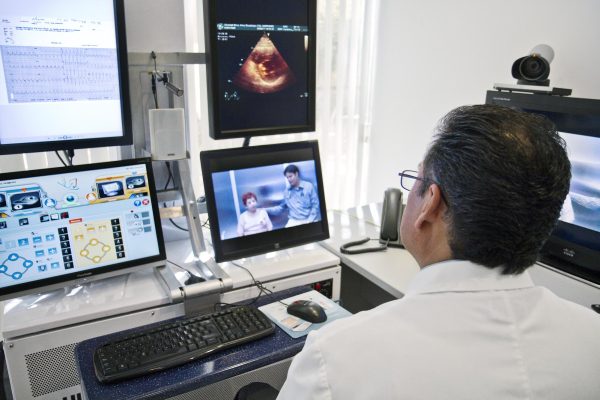‘Coronavirus is Feminine’ Decrees the Académie Française

People roam the streets of Paris before the arrival of the novel Coronavirus.
With over 28,000 deaths from COVID-19, France is one of the worst-hit countries in the world. Although scientists are still conducting research about the novel Coronavirus, one fact has been confirmed: it is feminine. After months of fighting the virus, the Académie Française has declared “non” (no) to “le COVID-19” and “oui” (yes) to “la COVID-19.” The Académie Française has worked to preserve the French language for almost four centuries. All decisions are made by the forty members, known as “les immortels” or the immortals, who are mostly elderly men who wear a uniform and carry ceremonial swords.
As in many romance languages, all words are given a gender. The articles “le” or “la” which are, respectively masculine and feminine, are stated before a noun. When it comes to abbreviations, the gender of the word is determined by the gender of the complete phrase. For example, “le” is placed before the Federal Bureau of Investigation (FBI) due to its core noun “bureau” being masculine. On the other hand, the Central Intelligence Agency (CIA) is referred to with “la” due to “agency” being feminine. Many people have been referring to the COVID-19 as “le” because the core term, “coronavirus” is masculine. However, to correct the gender of the novel virus, the Académie Française has stated that “COVID-19” is feminine under the ‘faulty use’ section of its website. The explanation was that COVID translates into “maladie provoquée par le coronavirus” which translates to “the disease caused by the coronavirus.” Since the main subject of the phrase “maladie” is feminine, the term “COVID-19” is feminine.
On top of clarifying the gender of the novel virus, the academy has redefined a few more terms regarding the virus to prevent the English language from further influencing the French terms. For example, they asked for “social distance” to not be referred to as “distanciation sociale” but “respect des distances de sécurité” or “respect the security distances.” Moreover, due to an increase in numbers of people relying on drive-thrus to pick up food in order to avoid social contact, they have asked for drive-thrus to be called “point de retrait automobile” or more concisely “point de retrait” which translates to the point where cars gather.
“Whether the COVID-19 is feminine or masculine, I am ready to say ‘au revoir’ to COVID-19,” said Mr. Blessent, the French teacher at Bronx Science.
“Whether the COVID-19 is feminine or masculine, I am ready to say ‘au revoir’ to COVID-19,” said Mr. Blessent, the French teacher at Bronx Science.
Darlene Park is an Arts and Entertainment Editor for ‘The Science Survey.’ As an Arts and Entertainment Editor, she edits articles covering various...










